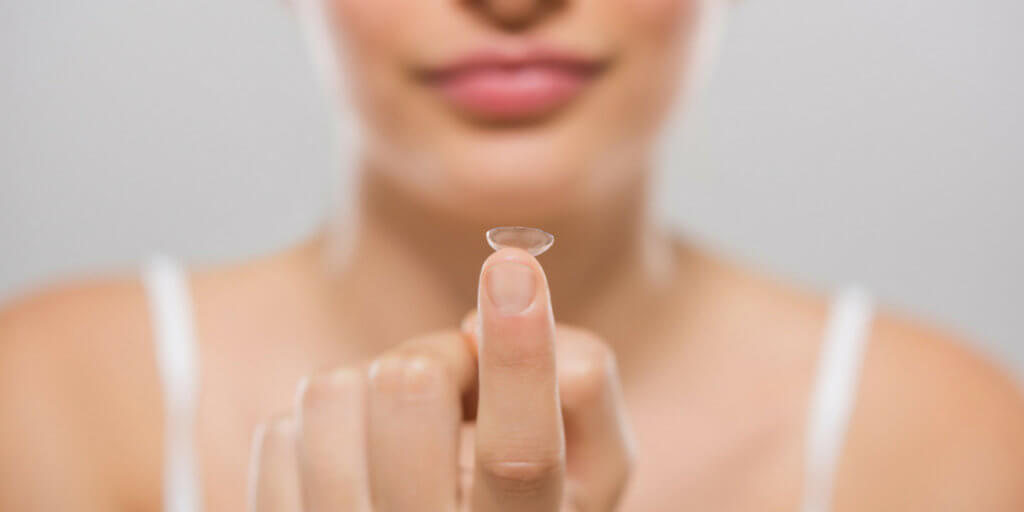
Approximately 40 million Americans wear contact lenses. Not only do contacts offer more flexibility and convenience, they also help correct several vision disorders, including nearsightedness, farsightedness, and poor focusing with reading material. Contacts are a great alternative to glasses; however, they can also pose potential risks, like eye infections and corneal ulcers, when not used properly.
Enjoy the comfort of contacts while lowering your chance of complications. Your habits, supplies, and eye doctor are all essential to keeping your eyes healthy!
Three Rules of Contacts
- Wash your hands with soap and water. Dry them well with a clean cloth before touching your contact lenses.
- Don’t sleep with your contacts in.
- Keep water away from your contact lenses – avoid showering with contacts in, and make sure you to remove them before swimming or using a hot tub.
Your Supplies
When cleaning your contact lenses, make sure to rub and rinse with contact lens disinfecting solutions – never use water or saliva to clean them. Always store them in your contact lens case and never store them in water. When you need to put your contacts back in the case, add new solution. Make sure you replace your contact lens case every three months to help prevent potential complications.
Your Eye Doctor
You should visit your eye doctor on a yearly basis (or more frequently depending on their recommendation) to confirm your current contact lens prescription, make sure the lenses are fitting you properly, and to check for eye infections. Talk with your eye doctor to determine the best contact solution since there are many kinds to choose from, including:
- Multipurpose solutions are used to clean, rinse, disinfect, and store contact lenses
- Hydrogen peroxide-based systems are used to clean, disinfect, and store contact lenses (may be recommended if you have an allergy to an ingredient in multipurpose solutions)
- Saline solutions are only used for rinsing contact lenses, they do not disinfect
- Daily cleaners are only used for cleaning contact lenses, they do not disinfect
- Enzymatic protein removers are for removing buildup that your eye may deposit on your contact lenses over time
- Rigid gas permeable care systems are used for hard contact lenses
For more information, visit:
https://www.cdc.gov/contactlenses/protect-your-eyes.html
https://www.fda.gov/ForConsumers/ConsumerUpdates/ucm048893.htm
https://www.cdc.gov/contactlenses/care-systems.html
